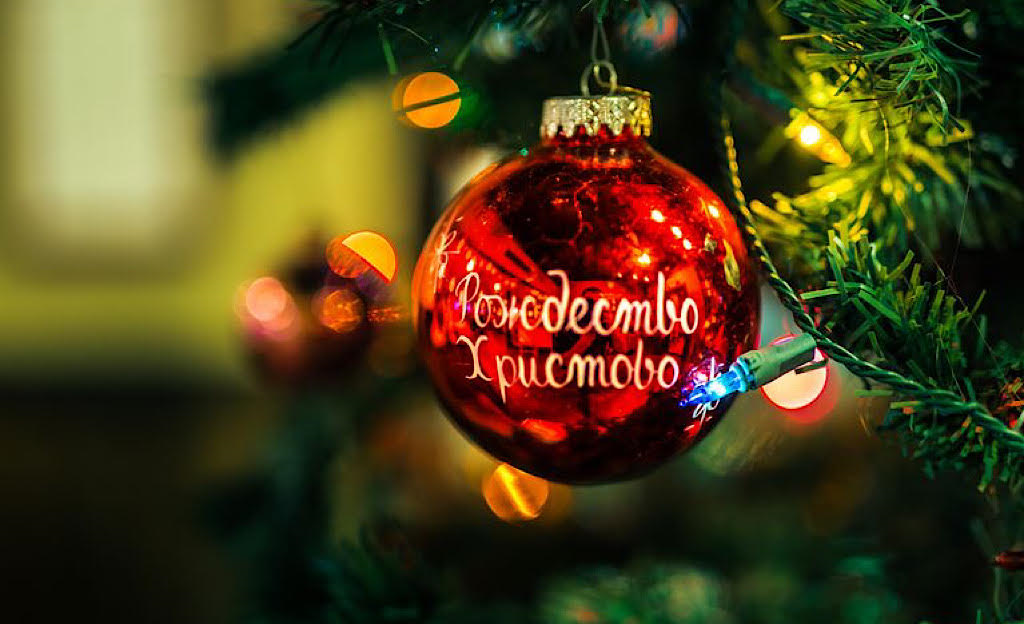Did you know there were two Christmas days? How did it all come about?...read on to find out more…
Background
Christmas on January 7 is also known as Old Christmas Day. Eleven days were dropped to make up for the calendar discrepancy that accumulated with Julian calendar when England and Scotland switched from the Julian to the Gregorian calendar in 1752. Many people, especially in rural areas, did not accept the loss of these 11 days and preferred to use the Julian calendar.
Many Orthodox churches recognise the holiday dates according to the Julian calendar. Christmas is still on December 25 in the Julian calendar so the January 7 date is only valid between 1901 and 2100 The Gregorian date for Orthodox Christmas will be January 8 in 2101 if the Julian calendar is still used.
The Julian calendar was revised in 1923 and this version is more in line with the Gregorian calendar. A few Orthodox churches follow the revised Julian calendar but most Orthodox churches follow the more traditional Julian calendar, which has the original dates for Christian observances prior to the Gregorian calendar’s introduction.
Orthodox Christians in central and Eastern Europe and other parts of the world celebrate Christmas on January 7.
The day is a time of reflection, inner thoughts and healing in many eastern European countries. Many Orthodox Christians fast before January 7, usually excluding meat and dairy products.
Foods may include:
- Lenten bread
- Nuts and fresh dried fruits
- Vegetables and herbs such as potatoes, peas, and garlic
- Mushroom soup
- Slow-cooked kidney beans with potatoes, garlic, and seasoning
- Bobal’ki (small biscuits combined with sauerkraut or poppy seed with honey)
- Honey
- Baked cod
Which countries celebrate on this day?
Nowadays, more than a third (39 per cent) of the world's Christians live in Russia - with around 85% of them choosing to celebrate Christmas in January.
Some Orthodox countries - including Greece, Cyprus and Romania - adopted a revised Julian calendar in 1923, and now celebrate with us on December 25.
Those that celebrate in January include Orthodox Christians in Russia, Ukraine, Israel, Egypt and Bulgaria.
Serbia, Belarus, Montenegro, Kazakhstan, Macedonia, Ethiopia, Eritrea, Georgia and Moldova also all stick to the traditional Orthodox date meaning they are also celebrating today.
Planet Mermaid would like to wish you all a:
счастливого рождества
“καλά Χριστούγεννα”
“Chag Molad Sameach”
“Eid Milad Majid”
“Весела Коледа”
„срећан Божић“
“Melkam Genna”
“Hristos se rodi”
“quttı bolsın'”
'გილოცავ შობა-ახალ წელს'
“Crăciun fericit”
Sources: https://www.timeanddate.com/holidays/common/orthodox-christmas-day
Planet Mermaids very own founder Maggie is also celebrating Christmas today and we would like to personally wish her a “срећан Божић“from all of the team.
If you are also celebrating Christmas today please let us know how you will be celebrating and what traditions you have, we would love to hear from you and share on our social media pages -
@PlanetMermaid
#planetmermaid
Visit www.planetmermaid.com to view our latest in amazing fabric mermaid tails for kids and adults, woman’s mermaid monofins, siren tails and a whole lot more!
Keep mermaiding and sharking












